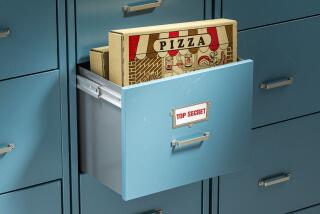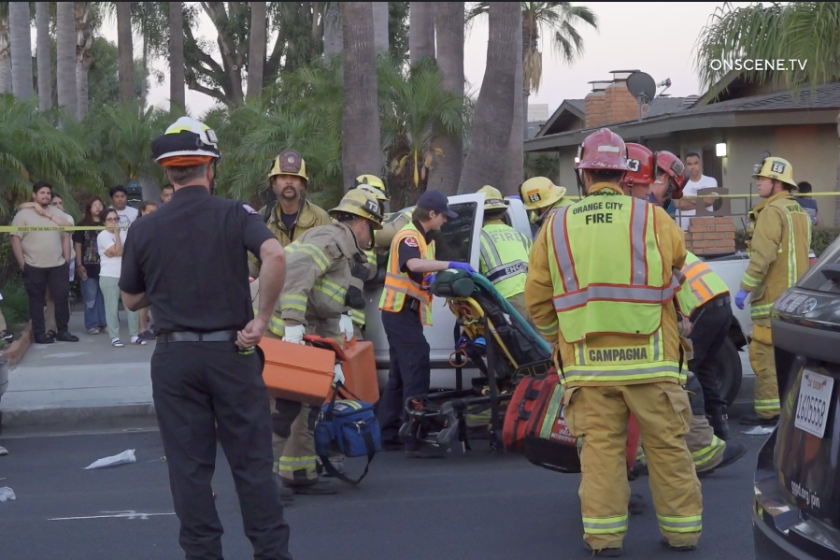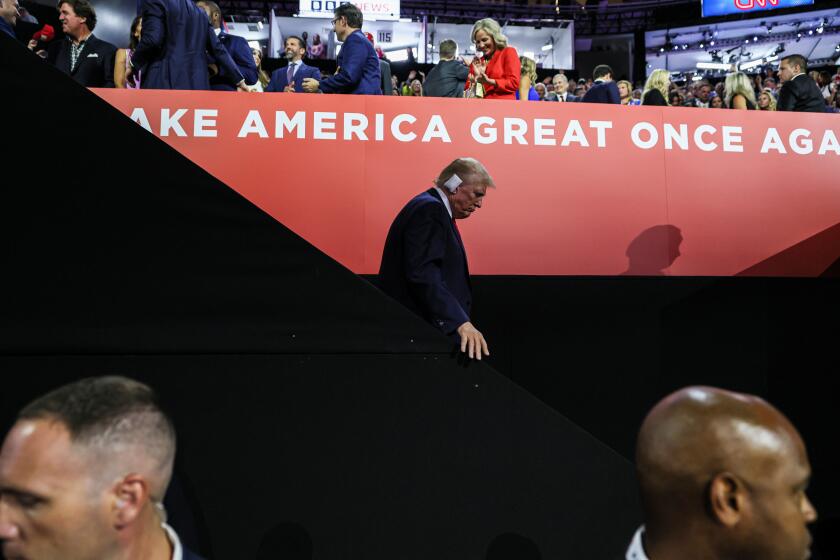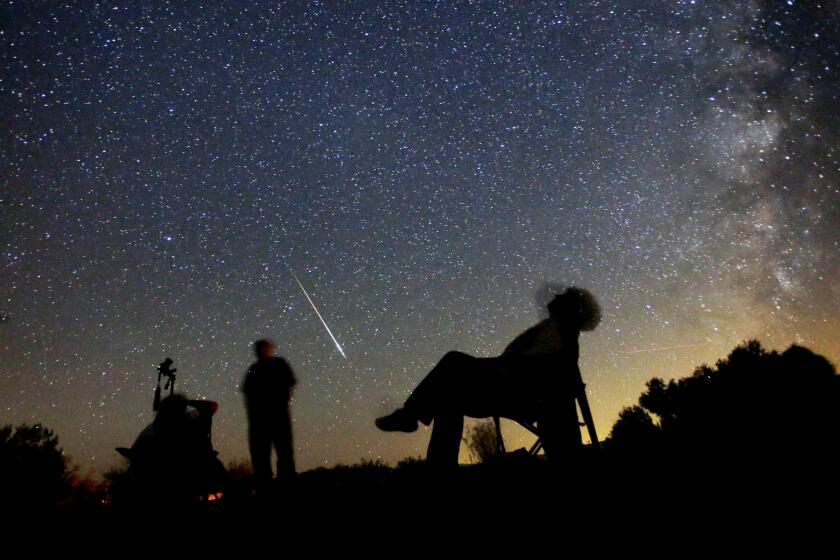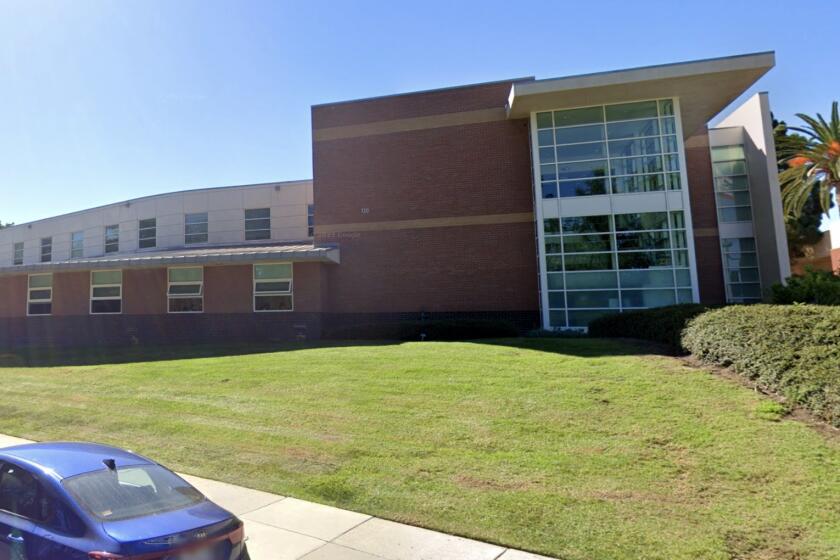L.A. Group Deters Bid to Ease Zoning for Liquor Stores
A group of angry South-Central Los Angeles residents have helped derail--at least temporarily--legislation aimed at stopping local governments from using zoning laws to control the proliferation of convenience stores selling beer and wine.
The legislation, introduced by Sen. Ken Maddy (R-Fresno) for a coalition of gas station and convenience store operators, would prohibit local governments from attaching special conditions on convenience stores such as 7-Elevens, Circle Ks, and Arco’s am/pm mini markets. And it would prohibit cities and counties from passing ordinances prohibiting gas stations from selling beer and wine.
Maddy and other supporters admit that their legislation is an attempt to get around laws such as a tough 2-year-old Los Angeles city ordinance that places beer, wine and liquor store operations under extra tough conditional-use permit procedures.
Claim Discrimination
But the bill’s backers claim that such ordinances discriminate against convenience stores because they are relatively new. As such, proponents argue, convenience stores are faced with special conditions that do not apply to established neighborhood liquor stores, supermarkets and bars, even though it is widely agreed that such places sell far more alcoholic beverages than do convenience stores.
Opposition to the Maddy bill is led by angry members of the South-Central Organizing Committee, a church-based community group credited with being responsible for passage of the Los Angeles ordinance.
“We are upset about the whole thing and we are going to fight it,” said Gwen Cordova, who came to the Capitol last week to lobby legislators and their staffs in an effort to defeat the bill.
“We feel like this is a slap in the face to us,” she said. “We worked so hard in South-Central Los Angeles getting that conditional-use permit process passed. It took years. Now here we are, trying to change our community for the better, and all of a sudden you find out that your legislators are trying to put the shaft to you.”
Would Remove Controls
She and other members of the organizing committee claim that the Maddy bill will effectively remove all local controls from an area of the city that has one of the highest concentrations of liquor stores in the nation.
Joined by officeholders such as Dist. Atty. Ira Reiner and city Controller James Hahn, their opposition was said to have caused several legislators to rethink their positions. Maddy postponed debate on the bill shortly before it was scheduled to be taken up by the Senate Governmental Organization Committee last Tuesday, and now it is off the legislative calendar altogether.
But the fight is expected to continue.
Supporters of the legislation have banded together, formed a pressure group called Food and Fuel Retailers for Economic Equality, and hired their own veteran lobbyist, Clay Jackson. Among its members are Southland Corp., which owns the 7-Eleven chain; Circle K Corp., Quick Stop Markets Inc., and a number of oil companies such as Beacon Oil Co., Thrifty Oil Co., and USA Petroleum. While not members of that group, Arco and other gasoline station operators support the legislation, according to Maddy.
Maddy said the convenience store operators’ complaints will not go away.
Competitive Disadvantage
One of their arguments is that so many conditions are placed on convenience stores that it puts them at an competitive disadvantage.
“Conditional-use permits now are being unfairly applied,” said Marc Aprea, government affairs representative for Southland Corp. “The bill does one thing: it sets a uniform state standard. It says you have to be fair. If you allow a food and beverage retailer to sell alcoholic beverages at one location, you ought to allow another food and beverage retailer to sell alcoholic beverages at another location.”
The bill would declare that no conditions could be imposed on one store that were not imposed on every other retailer of food or beverage products.
That, however, goes right to the heart of the conditional-use permit process. By definition, local governments contend that conditional-use permits are necessary to attach specific conditions on individual stores.
Factors considered in writing conditional-use permits include such things as the neighborhood in which the store is located, crime rates and proximity to schools and churches. Specific conditions range from an outright ban on the sale of beer and wine, to a requirement that one store close at 10 p.m., or a demand that another hire security guards to patrol its parking lot.
Counters Pressure
Maddy’s bill would also prohibit passage of city or county ordinances that ban the sale of beer at gas stations to counter growing pressure from community groups who believe that gas stations selling alcoholic beverages contribute to the problem of drunk driving.
Maddy argues that evidence shows that a very small number of persons arrested for drunk driving bought their alcohol at convenience stores. The most common culprits are bars, restaurants and liquor stores, he said.
“It doesn’t make any sense to tell a gas station it can’t sell beer when all a person has to do is drive a few feet and be in front of a liquor store,” he said.
Maddy said he hopes that a compromise could be reached.
But John Lovell, the Sacramento-based lobbyist for Dist. Atty. Reiner, who drafted the Los Angeles law when he was city attorney, said opponents of the measure are not in a mood to compromise.
“What they are asking for is a blanket exemption from conditional-use permits. That’s unheard of in the annals of municipal law,” he said.
Defends Ordinance
Lovell defended the zoning ordinance, saying it was developed because state regulation through state Department of Alcoholic Beverage Control licensing procedures is ineffective. He said there are more than 1,200 liquor licensees in South-Central Los Angeles--more than most states have. Lovell said the South-Central area, with about 74,000 residents, has more liquor outlets than Philadelphia and Pittsburgh combined, with their total populations of 8 million.
More to Read
Start your day right
Sign up for Essential California for news, features and recommendations from the L.A. Times and beyond in your inbox six days a week.
You may occasionally receive promotional content from the Los Angeles Times.
